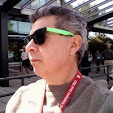Librarians and Self-censorship
 |
| Free speech for librarians comes with unspoken conditions |
I encounter many (often young) librarians in real life and online. One of the most frequent things people tell me is, "How come you are so free with your speech? I could never talk about those things--I would get fired." or more often, "...I would never land a job!"
It is striking that librarians consider themselves defenders of free speech and intellectual freedom, but that the above sentiment is held by so many librarians.
Why are librarians scared to speak about important issues?
I understand about library constituencies, but I'm not talking about library directors here--I'm speaking about regular librarians, or librarians searching for a job.
Last month, I had a session at the Oregon Library Association Conference. My session was on cannabis resources for librarians. The session consisted of a panel. I had invited another knowledgeable librarian to be on the panel. However, the librarian's director told them that they could not be part of the session. I found this interesting--especially since the state of Oregon has legalized cannabis for recreational and medical consumption.
 |
| Censored and Self-censored |
Anyway, the fact the librarians are scared to speak about certain issues, or to let their staff speak about certain issues because if might offend their constituencies is incredibly offensive to the notion of free speech AND intellectual freedom. It would be wiser to create a campaign on intellectual freedom and free speech than to censor librarians, or to self-censor--which is the most usual case.
Librarians should never be scared to talk about issues. We should never be wary of pointing users to legitimate information sources, not matter what the subject and we should never self-censor.
It is chilling to me to hear so many people who are fearful of speaking out, speaking up or bringing up topics that might make others feel uncomfortable. One of the main issues with our country is that it avoids issues that are uncomfortable. This leads to anger, violence and other social issues.
As librarians, we should feel free to speak our minds, be ready to defend our free speech rights and use, be ready to defend free speech for others and access to information that some may feel should be restricted.
I have suffered the ramifications of free speech. In fact, one of the heads of an academic diversity in libraries program recently told me to, "Never contact me again. Your rhetoric is weak, and your arguments are unconvincing."
If he doesn't like my arguments, then attack the arguments--don't cut me off from you and your program.
When things like this happen, and even worse--when they happen in public, these ramifications serve as a model of punishment. This model informs others of what can happen to them if they speak out, or don't reinforce the status quo.
If we self-censor, how can we ever hope to achieve promote free access to materials, and the free speech of ourselves and others?












